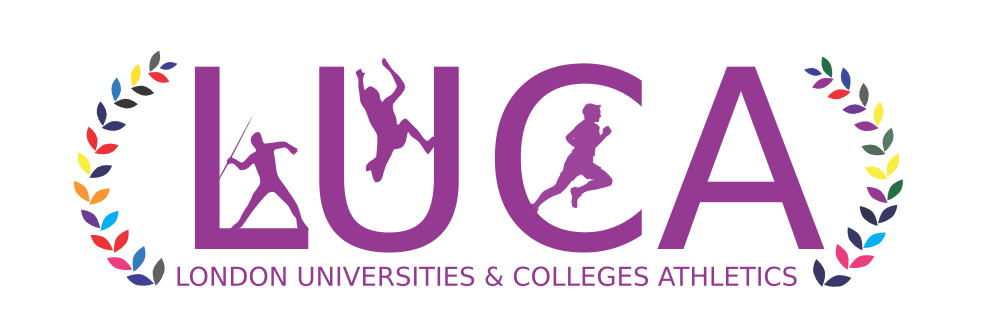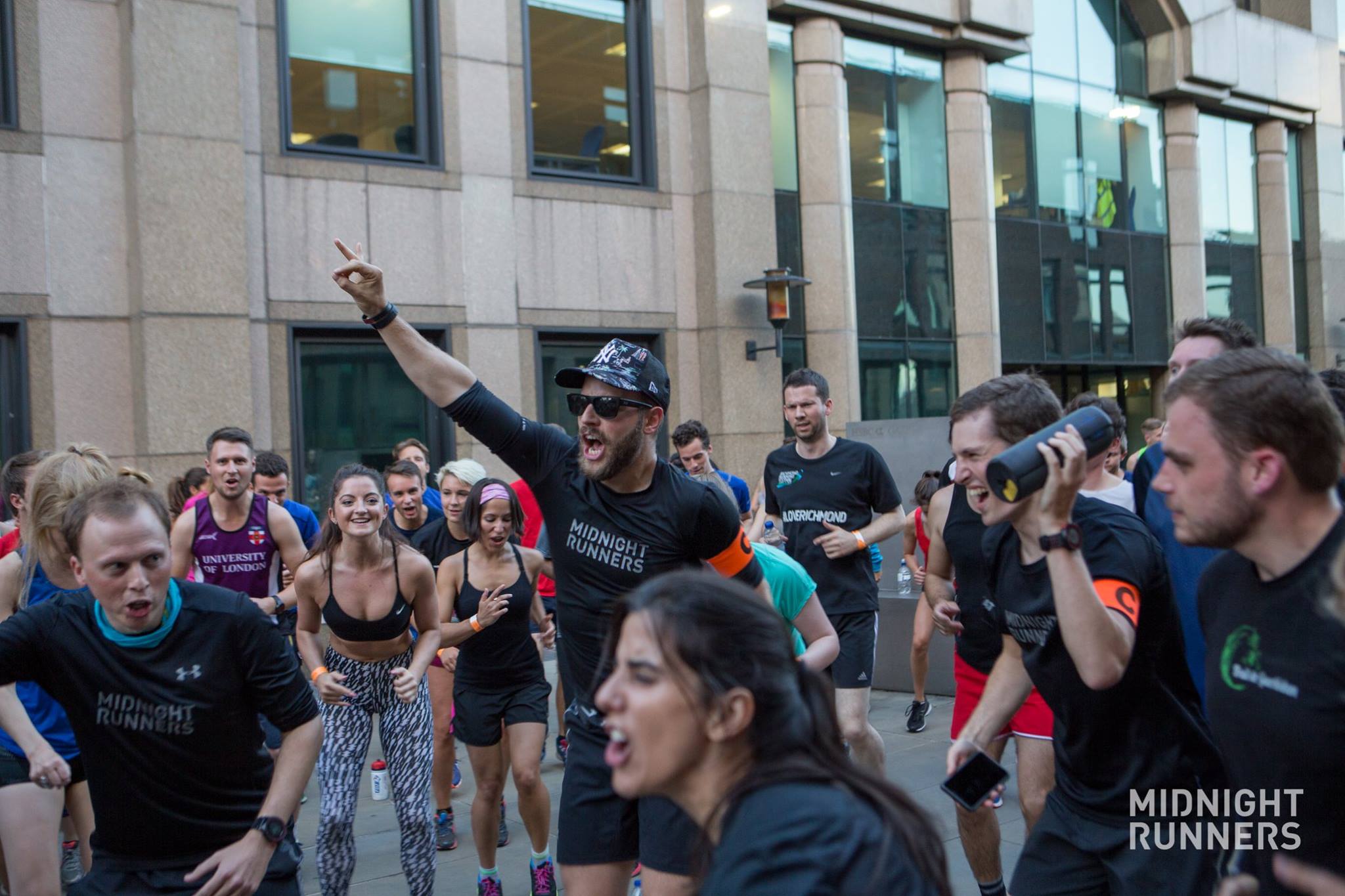
Running clubs may be on the decline, but running communities are on the rise.
No better example of the rapid growth in running communities is there than the Midnight Runners. Within 15 months, the group has gone from 15 runners to over 400.
I’m a regular club runner, but one of my colleagues has spoken so highly of the Midnight Runners group that I decided to give it a go and compare the two experiences. So, for the last two months, I’ve been running with the Midnight Runners every Tuesday evening at their 10K Music Bootcamp Run.
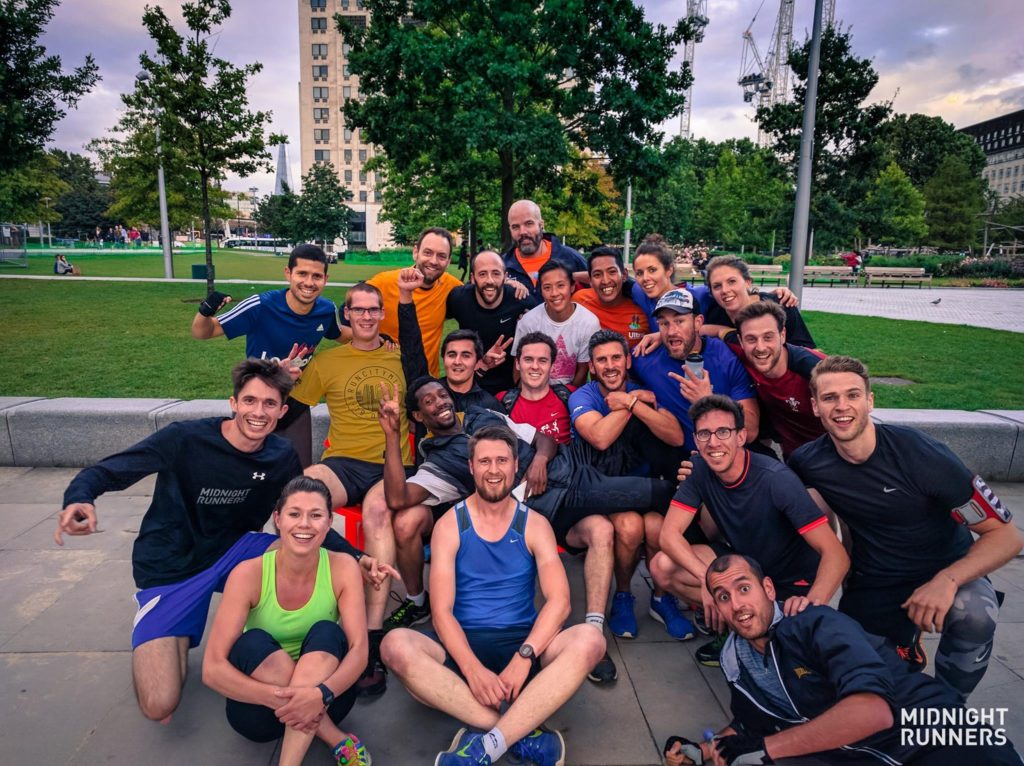
To fully understand the Midnight Runners experience, you need to know how they started.
Co-founder Greg Drach, 27, told SWLondoner: “Midnight Runners came about when I was at university – I used to go for runs at midnight – I have always liked to see London at night.”
“Once I graduated, I pretty much forgot about the whole idea, but just over a year ago I restarted running with my friends in Hyde Park and then organised a night time run.”
“Last January we put up the event on Facebook, we brought a bunch of speakers on the day and 15 people showed up, all strangers, and we went for a run and then for some drinks.”
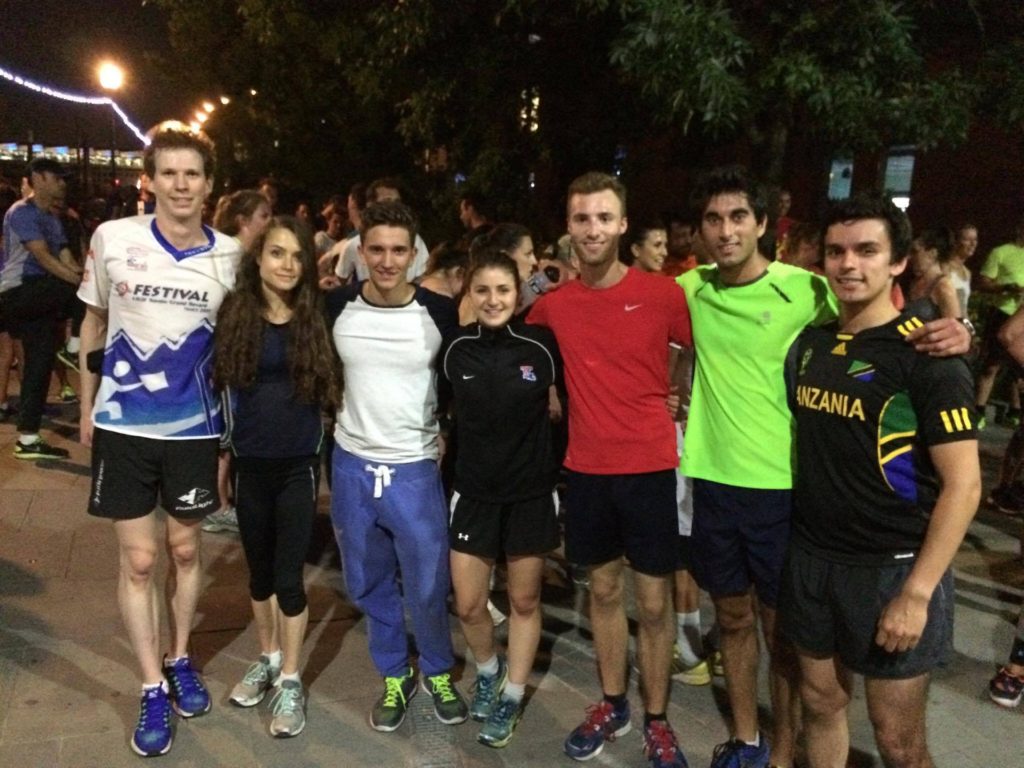
From the very beginning, the Midnight Runners were just as much about making new friends as they were about running, and Drach reminds the group of that fact before every run.
“Turn around and introduce yourself to two people you haven’t met before” are the orders I’ve become used to hearing. But it doesn’t need to be ordered. Everyone seems genuinely friendly to each other – at the beginning, throughout the run, and afterwards in the pub. As Imperial College London Student, Anil Keshwani puts it: “The best thing about it has to be the people and the energy they create. Everyone is super friendly and those of us who went from Imperial really enjoyed chatting to them during the run or afterwards over a pint (of our favorite isotonic drink, obviously)”.
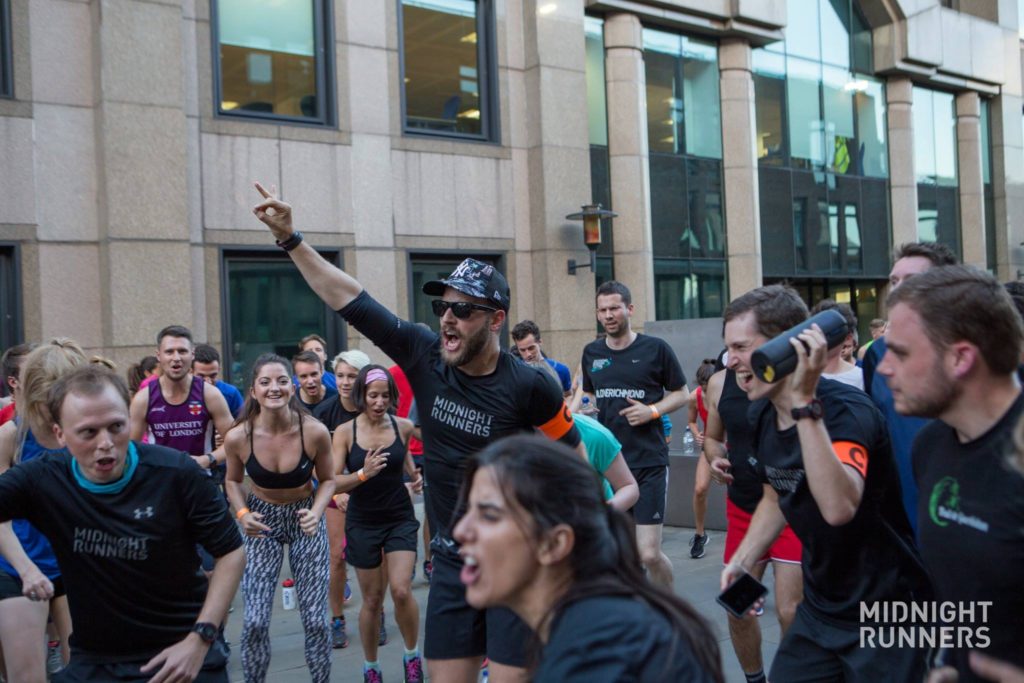
The weekly runs are around 10K along the banks of the Thames, from St Paul’s over Westminster Bridge, down to Tower Bridge and back to St Paul’s. But along the way there are also five stops with Tabata style core exercises. One of the great things about these exercise stops is that they give slower runners the chance to catch up. If you’re quick though, you end up doing a lot of extra exercise.
The Midnight Runners are one of the only running communities that run with music. Their run leaders are equipped with Ultimate Ears Bluetooth speakers and a Beatbringer backpack speaker. You can’t always hear the music (it’s impossible to cover the length of 400 runners) but it’s especially great during the exercise stops.
The other distinguishing feature of the Midnight Runners is the photos.
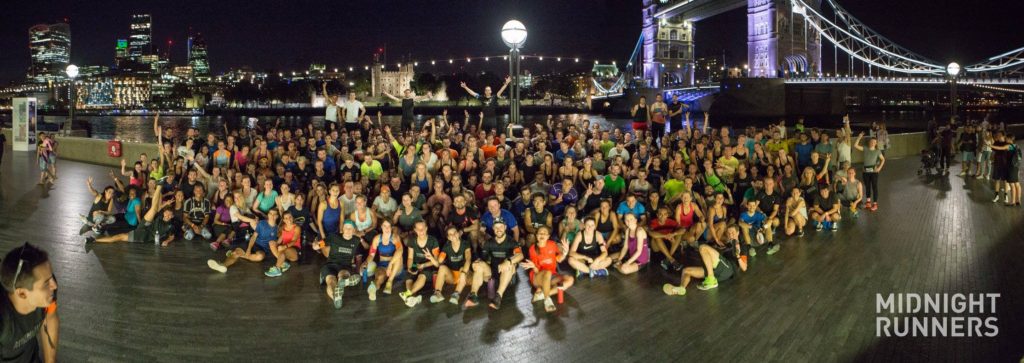
Talking to the Guardian, co-founder Christian Dorffer, 45, said: “What is interesting is that the people who run with us love to be photographed. This is part of their DNA on Facebook or Instagram. They want the right kind of images of themselves and we produce really high-quality images of people doing cool stuff, like running at sunset or in the dark in front of the Shard.”
Photos are a key part of the Midnight Runners experience. There are two group photos as well as copious numbers of photos taken throughout the run. All of these get uploaded to the Midnight Runners Facebook page a couple of days after the run. Cue the tagging, sharing and profile picture setting.
The photos do two things. First, they give runners a cool photo to show their friends. “They put it as their profile picture. Like, this is who I am. I’m a Midnight Runner”, says Dorffer. Second, as the photos are shared on various social media outlets, the Midnight Runners get free publicity, which has undoubtedly helped their rapid expansion. In fact, when Drach asks new runners to raise their hands at each of the runs, about 20% of the group do so; much to the applause of everyone else.
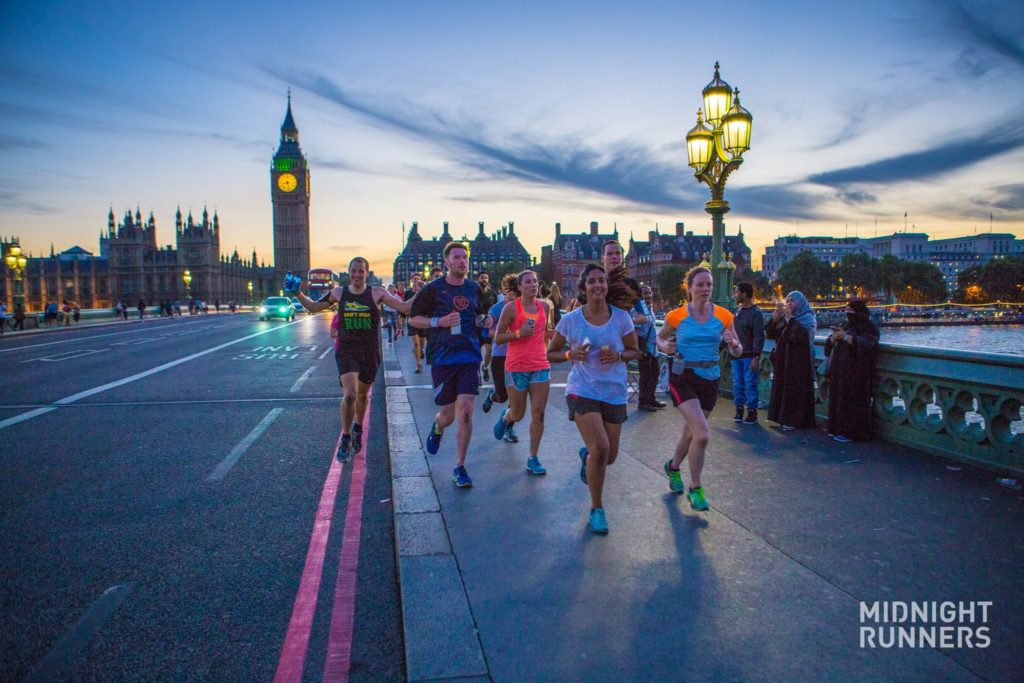
This expansion has, however, caused some problems. Running around London with 400 people doesn’t go unnoticed. Consequently, the Midnight Runners have had to introduce a membership system, asking people to pay £10 per month. But runners get two free sessions before having to become a member and membership does give access to other sessions, including the Sunday runs and monthly Midnight Runs.
My time with the Midnight Runners has come to a close. After a holiday, I’ll be returning to my traditional athletics club ways. But I think that traditional clubs need to reflect on how they can emulate the success of running communities like the Midnight Runners. Could music help to make training more enjoyable? Would the incorporation of exercises help to build more strength and reduce injury, a common problem for runners? Can running around landmarks instead of tracks and parks improve retention? Maybe we need to offer more Bootcamp run style sessions to attract runners who are not keen on the traditional track sessions.
On the other hand, there are also unique advantages of the more traditional approach. First, running communities do not providing coaching or set training plans, which may not be ideal for serious athletes in the long term. Second, the Midnight Runners may boast about their inclusiveness, but this is always going to be limited to people who can actually run a 10K. This could change in the future with the addition of shorter sessions, but for now, clubs and informal groups still offer the best way for novice runners to train.

The Midnight Runners meet every Tuesday at 7:30pm at Anytime Fitness, 1 Pilgrim Street, London, EC4V 6DE.
Sign up here: http://www.midnightrunners.co/
Photo Credit: Máté Fülöp, with thanks.
